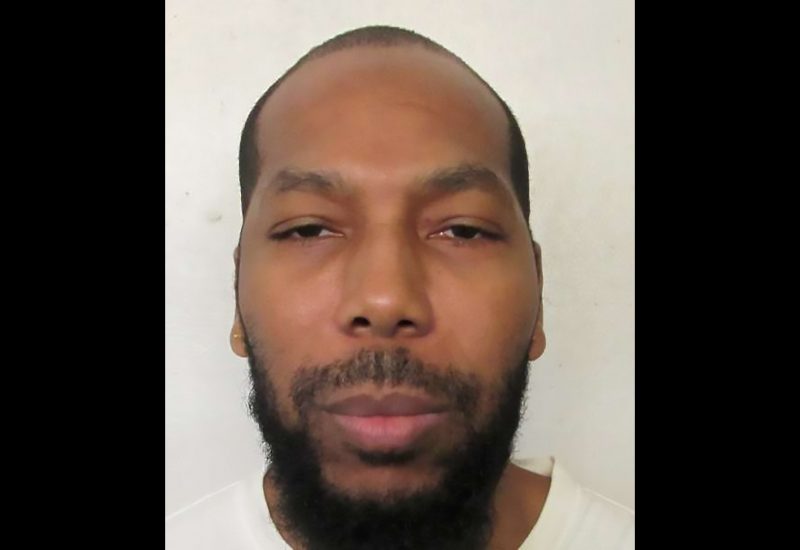US death row inmate battles to have imam by his side to the end
This handout photograph obtained from the Alabama Department of Corrections shows Domineque Ray, 42, a Muslim death row inmate in the conservative southern US state who is battling to win the right to have an imam accompany him into the death chamber (Handout)
Washington (AFP) – A Muslim death row inmate in the conservative southern US state of Alabama is racing against time to have his final wish granted: for an imam to accompany him into the execution chamber Thursday.
Domineque Ray, 42, is scheduled to receive a lethal injection nearly 20 years after being sentenced to death for the 1995 rape and murder of a 15-year-old girl in Selma.
Ray — who has also been convicted over the double murder of two teenage brothers a year before — has converted to Islam since his arrest.
His attorneys say their client’s faith is of “the utmost importance” in his life: he added Hakim as a middle name, keeps a full beard and wears the traditional kufi — a brimless, short and rounded cap.
As his scheduled execution draws near, Ray asked Alabama prison authorities to grant his last wish.
But the state says such a move would violate execution protocol, which allows inmates the right to have the spiritual advisor of their choice at their side up to the chamber’s door — but not inside.
Alabama law does allow for a state prison chaplain to be present inside the death chamber — but that chaplain is also seen as a “member of the execution team.”
Ray filed an 11th hour motion with the courts last week, but on Friday, a federal judge refused his request.
The state of Alabama “cannot permit even a slight chance of interference with an execution,” Judge Keith Watkins said in his ruling.
“Ray’s private spiritual advisor is untrained, inexperienced, and outside the State’s control.”
– ‘A Christian event’ –
Ray’s attorneys have appealed and are hoping for success before Thursday.
They say Alabama authorities are denying Ray his First Amendment right to freedom of religion.
“The State of Alabama allows the inmate of Christian faith to have a spiritual advisor guiding them in the transition to the after-life,” said Hassan Shibly, an attorney and member of the Council on American Islamic Relations.
“In giving this advantage to Christians and denying it to citizens of other faiths, it violates the Constitution.”
As for the practical considerations mentioned by the federal judge, Shibly dismisses them, saying, “I am an attorney and an imam — I am willing to volunteer” to help Ray, while respecting prison rules.
Each of the 20 US states that use capital punishment sets its own parameters for executions, according to Robert Dunham, executive director of the Death Penalty Information Center.
In most cases, the condemned inmate can ask for someone to accompany them to the chamber door, so refusing Ray’s request in that case could be justified.
But Alabama “requires that a Christian chaplain be present in the execution chamber. No other state that I am aware of has made the execution a Christian event,” Dunham told AFP.
“It should not be that much of a surprise, given the fact it’s Alabama,” he added. “Alabama has an history of attempting to create a particular state-sanctioned religion.”
The state’s former chief justice Roy Moore long refused to remove a monument to the Ten Commandments that he had placed in the rotunda of the Alabama Judicial Building.
He was eventually stripped of his position on 2003 over the controversy, and the monument was removed.
Nearly a decade later, he was re-elected as the court’s top justice.
Disclaimer: This story is published from a syndicated feed. Siliconeer does not assume any liability for the above story. Validity of the above story is for 7 Days from original date of publishing. Content copyright AFP.


